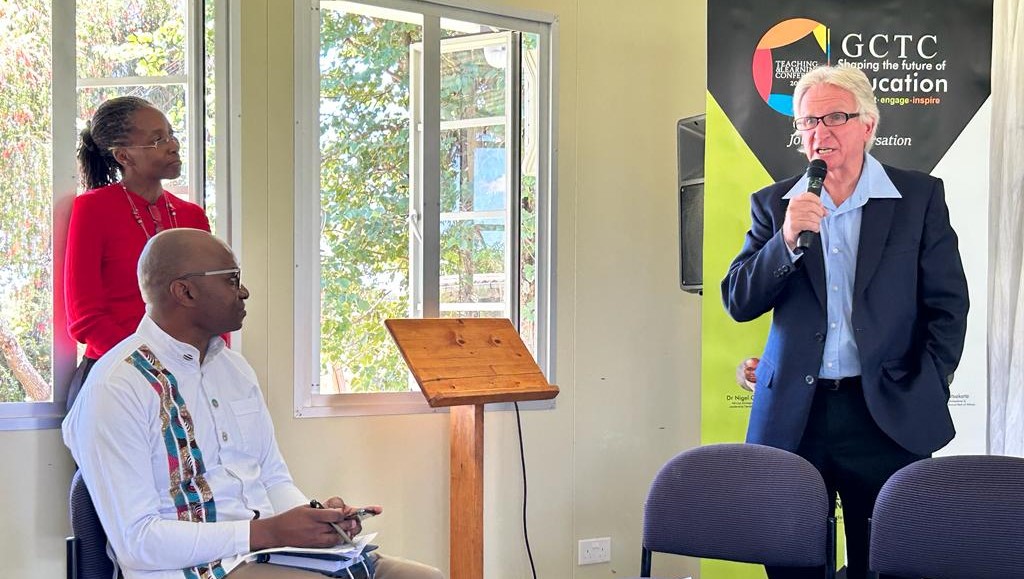When it comes to Zimbabwe’s school system, everyone has an opinion. On the one hand, they applaud Zimbabwe’s high literacy rate and the production of skilled professionals in high demand in many nations. Recent examples include our teachers in Rwanda and our nurses in the U.K.
On the other hand, some argue that it has fallen behind the times and, at least at the university level, is generating graduates who are unprepared to compete in the global workplace of the information age.
This shortcoming has been exacerbated by the difficult economic conditions that have caused many qualified instructors and educators to leave the nation. The teachers that remained must deal with insufficient educational sector funding.
Both arguments have merit.
Over the years, we’ve seen the primary and secondary school curriculums modified, as well as the implementation of CALA and other programs aimed at improving on what we have.
All noble causes. However, continued professional development is needed for the teachers to gain a fuller grasp and appreciation of CALA.
In the meantime we need to ensure the children are not the ones who suffer in all of this. So, how can we assist teachers in doing their jobs and inspiring the future generation?
There are various issues that need to be addressed. There is dialogue on compensation issues, and unions and the government have been duking it out for years. The Ministry of Education continues to invite input on curriculums and CALA.
The teacher, in her classroom, has little control over the outcome of those conversations. What they have full control over is their classroom.
One organization, Gateway Christian Teachers College, is attempting to focus on that classroom, the teacher’s domain, and equip the teacher to excel, regardless of those other macro challenges.
Teaching and Learning Conference
Earlier this month, Gateway Christian Teachers College hosted its first Teaching and Learning Conference for which they set out with the motto ‘to connect:engage:inspire’ under the theme ‘Shaping the future of education.’
It was the inaugural conference and the organisers got valuable feedback on how to best structure it. That feedback is going to be crucial for the next installations, where hopefully many more will choose to attend.
We were able to attend on two of the three days it was held and came out of it enthused. For a brief while, I reasoned that it was because I was not an educator and hence was prone to being impressed by what was evident to qualified teachers. Speaking with several of them, it felt like the conference was beneficial to them as well.
The speakers represented decades of experience in the education sector and some like Nigel Chanakira and Samuel Matsekete of Old Mutual brought business experience to the proceedings.
Presentations were on topics like:
- Where is education going in the context of global changes and trends?
- Classrooms that mirror the world: Reality is interdisciplinary
- Education for Future Work – Making Zimbabwean Children Competitive in the Global Marketplace.
- Competency-based education: Preparing students for the real world through mastery
- How do you care and cope in today’s classroom?
- Financial literacy for educators
This is not the whole list. You know how academics tend to wax lyrical? Fortunately, this was not the case at this event. It was refreshingly practical. The teachers that were present can apply what they learned in the coming term.
Mr Matsekete’s presentation on making Zimbabwean children competitive in the global workplace emphasised the universal skills learners need to stay relevant in a fast-changing workplace. These ‘durable skills’ cannot be found on any syllabus but things like interpersonal skills, emotional intelligence, judgement etc. have to be taught.
After discussing how teachers might encourage higher student engagement, the conference’s final day provided my favourite presentations. They concentrated on assisting the teacher in dealing with the difficult Zimbabwean environment.
The ‘How do you care and cope in today’s classroom?’ presentation acknowledged that teaching is hard and proceeded to explain practical ways teachers can change their perspective and rekindle their passion for the work.
The ‘Financial literacy for educators’ presentation drew the expected level of interest. We are all aware that no one operates at full capacity while they are preoccupied with day-to-day concerns.
Because educators have little power over compensation numbers, the presentation focused on how educators may stretch their dollars and create new income streams.
Looking forward to 2024
The conference will be back next year, bigger and better. If what I saw was version 1.0, I can’t wait to see what the second event is going to look like.
Do let us know what you think of such events. Do you think this strategy of helping the teacher achieve the most under the current curriculums and prevailing economic conditions is better than trying to change the whole education system?
Also read:
Rethinking the new normal in Zimbabwe’s education sector
We seriously need to rethink our decision to keep smartphones out of schools

What’s your take?